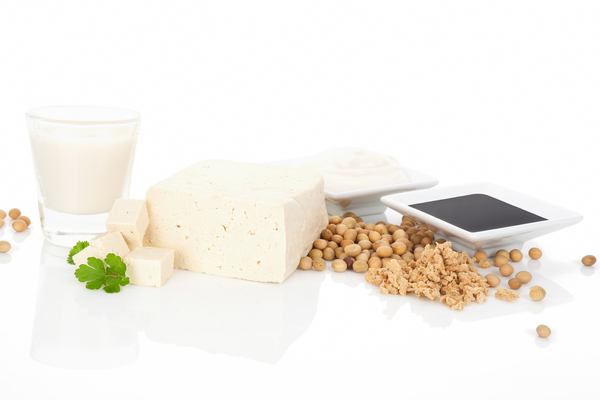With the growing considerations for health and the environment in recent years, many people are using plant-based options like soy milk, as an alternative to dairy milk.
Soy milk is made using soybeans soaked in water, ground, and strained.
However, there is a concern among many, if soy milk contributes to weight gain and makes you fat.
Soy milk has a considerable amount of soy protein and fiber that will help you lower the risk of heart diseases and high cholesterol.
Soy milk is not fattening in particular, but consuming excessive calories from any food source may contribute to weight gain.
Contents
Does soy milk increase belly fat?
As opposed to the highly saturated fat present in milk, which might form deposits, soy fat is good for you.
Soy milk has monounsaturated fat that prevents fat from increasing in the blood. It also deters cholesterol absorption and intestinal fat.
Soy has phytosterol, which has the function of blocking fat.
Consuming soy milk will lower your actual daily intake of dietary fat. Full fat soy milk can be consumed on its own or can make guilt-free desserts and snacks as well.
Interestingly, soy milk can also help you build lean muscles.
It has as much protein as dairy milk-seven grams of protein in a cup, with all kinds of essential amino acids.
Protein from soy milk is, in fact, considered one of the best sources of complete protein, providing nutrition for healthy tissues, muscles, and all the other functional systems of the body.
Studies have also signified that regular intake of soy products, paired with working out, will help reduce body fat and build a high percentage of lean muscles.
Does soy cause weight gain?
Looking at the nutrition facts of soy milk, an 8-ounce glass of regular soy milk has around 115 calories.
It has 11 grams of carbohydrate, 8 grams of protein, and 4.1 grams of fat, of which 0.5 grams are saturated fat.
Choosing low-fat soy milk will reduce the total calories per serving to 87kcal only, providing you with 15 grams of carbohydrate, 4 grams of protein, and 1.2 grams of fat.
Both regular and low-fat soy milk have 2 grams of fiber in each serving.
In comparison with dairy milk, soy milk has no cholesterol or lactose.
It has even lesser fat and fewer calories than regular milk, which has about 150 kcal in each serving, of which 50% comes from fat.
Calories in regular and low-fat soy milk are almost the same per serving.
It also has almost the same amount of protein, vitamin D, and calcium as that present in cow’s milk. This means that soy milk is as nutritious as cow milk while being less fattening.
In a study published in the Journal of American Dietetic Association, people on a diet were made to drink either 720ml of skimmed milk promoting weight loss, or soy milk.
The study was conducted to see if soy milk is as beneficial as skimmed milk for weight loss.
At the end of the study, it was found that both groups had lost the same amount of weight, concluding that soy milk is beneficial for weight loss as well.
Is soy milk healthy for weight loss?
Soy milk is packed with fat-burning vitamins.
The two most essential vitamins for energy production and fatty acid metabolism, riboflavin and vitamin B12 are abundant in soy milk.
One cup of soy milk has 50% of recommended daily intake (RDI) of vitamin B12 and 30% RDI of riboflavin.
When you have a high intake of these nutrients, they will help you burn fat more effectively, contributing significantly to weight loss.
It has also been established in theory that upon consumption, soy milk will act like leptin, the metabolic hormone that signals the brain that you should stop eating, and is full.
The only way you might gain weight while consuming soy milk is if it increases your daily energy intake as well.
Benefits of Soy Milk
- Reduced Cholesterol
Cholesterol is needed to produce healthy cells in the body, but high cholesterol levels will put you at a high risk of cardiac diseases.
With high cholesterol levels, fatty deposits develop in arteries, which, if form a clot will lead to a heart attack or stroke.
A meta-analysis showed that consuming 50 grams of soy each day contributed to a 9.3% reduction in total cholesterol, and a 13% reduction in LDL without affecting the serum HDL concentrations significantly.
- High in Protein
Soy milk has around 6.34 grams of protein per cup, and unlike any other plant-based milk, it also has all nine essential amino acids.
- High in Iron and Calcium
Calcium is needed to maintain strong and dense bone tissue, while iron is needed to aid the function of red blood cells. Soy milk has a high content of both iron and calcium.
- No Sensitivity to Casein or Lactose
Many people are often intolerant to lactose, a sugar present in cow’s milk. This leads to symptoms like diarrhea, nausea, cramps, and vomiting.
Casein is another element present in cow’s milk that sometimes contributes to immune system malfunction and allergy symptoms.
Soy milk has none of these and can be consumed by anyone who is lactose intolerant, safely.
